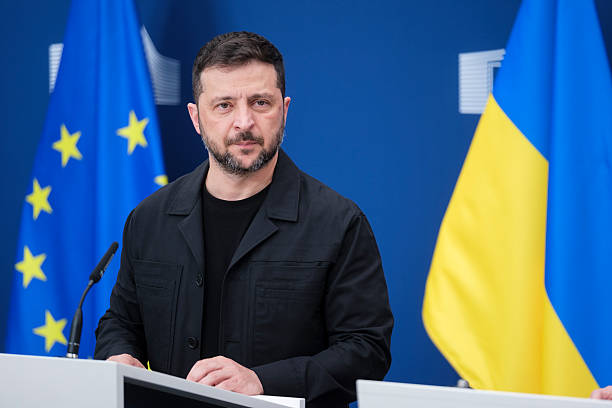
An aerial view of the Port of Felixstowe, the UK’s busiest container terminal in Felixstowe, United Kingdom. (Photo by Chris Gorman/Getty Images)
BRUSSELS — The European Union has signaled its willingness to accept a new universal tariff proposed by the United States.
The Union, however, is pressing Washington for targeted exemptions in strategic industries, including automobiles, pharmaceuticals, semiconductors and commercial aircraft, according to officials familiar with the ongoing negotiations.
The framework, reportedly backed by former President Donald Trump and now under review by the Biden administration, would impose a flat 10% tariff on a broad range of U.S. imports and exports.
While the EU acknowledges the potential benefits of a more predictable trade regime, leaders are concerned about the disproportionate impact on key sectors vital to the bloc’s economy.
Universal Tariff Deal Faces Pressure from EU Export-Heavy Sectors
According to a Bloomberg report, EU negotiators are requesting sector-specific exemptions or flexible quota arrangements to offset the effects of the proposed 10% tariff.
Also Read: British Tourist Dies After Falling From Cliff at Majorca Beauty Spot
Brussels is particularly focused on lowering the U.S.’s current 25% tariff on cars and car parts and the 50% tariff on steel and aluminum, which were originally imposed under national security justifications.
“There’s room for alignment, but this has to work for both sides,” one EU official said, requesting anonymity due to the sensitive nature of the talks. “Our industries need breathing room to remain globally competitive.”
EU Pushes Back on Uniform Universal Tariff, Seeks Balanced Trade
European Trade Commissioner Valdis Dombrovskis is reportedly leading the effort to secure carve-outs for sectors deemed critical to EU strategic autonomy. Stakeholders across the bloc—from Germany’s automotive giants to Ireland’s pharmaceutical exporters—have warned that the proposed universal tariff could distort trade if applied indiscriminately.
While U.S. Trade Representative Katherine Tai has expressed openness to structured negotiations, Washington insists that any deal must support its broader goals of fair competition and supply chain security.
Analysts say both sides are aware that the outcome of these negotiations could shape future transatlantic trade norms for decades.
Brussels is looking to replicate elements of the 2022 EU-Japan steel and aluminum agreement, which replaced blanket tariffs with quotas based on historic trade volumes—allowing more flexibility while still addressing U.S. concerns.
“The universal tariff cannot be rigid,” said a senior EU diplomat. “It needs to reflect both strategic sensitivities and the reality of integrated global supply chains.”
Transatlantic Trade Talks Could Reset Global Tariff Framework
The broader implications of the universal tariff proposal are being closely watched by global trading partners. Trade experts say the EU’s willingness to negotiate—rather than reject—the concept could signal a pragmatic shift in international trade diplomacy, especially after years of volatility under past U.S. administrations.
“We are no longer in the era of free trade absolutism,” said a trade policy analyst in Brussels. “The idea now is managed trade—rules-based, but also secure and resilient.”
The negotiations are expected to continue through the second half of the year. EU leaders hope to reach a preliminary agreement before 2026, potentially anchoring a new chapter in EU-U.S. economic relations under a shared tariff framework.
“Cooperation is possible,” said Commissioner Dombrovskis in a recent closed-door briefing, “but only if fairness, balance, and sectoral flexibility are on the table.”

